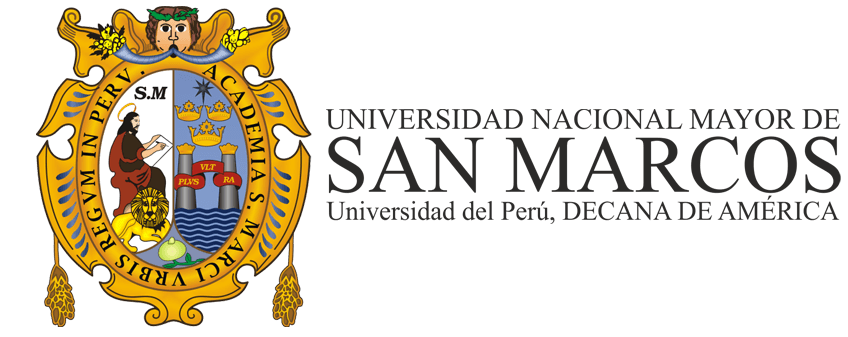MULTIMODAL TREATMENT WITH HYPNOSIS IN THE DEPRESSIVE STATE IN ADJUSTMENT DISORDERS
DOI:
https://doi.org/10.24039/rtb20222021466Keywords:
Depression, hypnosis, multimodal treatment, upset of adaptationAbstract
Hypnosis is a medical procedure that has accompanied man since primitive stages, and in the last 50 years its study and practice has gained more space within the field of Psychology. In the Psychiatry service of the Manuel Fajardo Rivero Hospital, Villa Clara, Cuba different diseases are treated through the use of this technique. Taking into account the results achieved in emotional disorders and the high incidence of adjustment disorders, where depression is one of the most frequent clinical syndromes, this research was aimed at conducting an explanatory study with a quantitative approach, with the objective of evaluating the effectiveness of multimodal treatment with hypnosis in the attenuation of the depressive state in adjustment disorders, in the period from January to October 2017. The sample was selected in a non-probabilistic, intentional way, being made up of 20 patients, in ages between 18 and 35 years old. Documentary review, clinical interview, Beck's inventory and the depression evaluation scale by specialists were used. The patients evaluated presented before starting the multimodal treatment a depressive state with a predominance of thought and somatic symptoms. After treatment, the initial depressive state was not confirmed. The main manifestations that formed a depressive state before starting treatment were greater in intensity and frequency than those present at the end of it, not presenting indicators of depressive nosological identity.
Downloads
References
Águila, D. 2019. Efectividad del tratamiento Multimodal con Hipnosis en la atenuación del estado depresivo en trastornos de adaptación [tesis de maestría]. Santa Clara: Repositorio de la Universidad Central “Marta Abreu” de Las Villas.
Alejo, D.I.R. & Ramírez, M.T.G. 2020. Integración de la terapia cognitivo conductual y la terapia centrada en soluciones en un caso de depresión mayor. Revista Electrónica de Psicología Iztacala, 23: 147-154.
Alladin, A. 2018. Cognitive hypnotherapy for psychological management of depression in palliative care. Annals of Palliative Medicine, 7: 112-124.
Álvarez-Mon, M.A.; Pereira, V. & Ortuño, F. 2017. Tratamiento de la depresión. Medicina-Programa de Formación Médica Continuada Acreditado, 12: 2731-2742.
Beck, A.T. 2016 Cognitive therapy: Nature and relation to behavior therapy–republished article. Behavior therapy, 47: 776-784.
Cabreras, Y.; López, E.; Ramos, Y.; González, V.; Gonzáles, A. & López, L. 2013. La hipnosis: una técnica al servicio de la psicología. Medisur, 11: 7-14.
Cabreras, Y.; López, E. & Arredondo, B. 2017. La psicología y la oncología: en una unidad imprescindible. Revista Finlay, 7: 115-127.
Correa, J. & Abella, P.P. 2018. Unidades del dolor del siglo XXI. ¿Protocolos de consenso o medicina basada en la evidencia? Persona y Bioética, 22: 29-38.
Elkins, G.R.; Barabasz, A.F.; Council, J.R. & Spiegel, D. 2015. Advancing research and practice: the revised APA Division 30 definition of hypnosis. The International Journal of Clinical and Experimental Hypnosis, 63: 1-9.
Facco, E.; Casiglia, E.; Zanette, G. & Testoni, I. 2019. On the way of liberation from suffering and pain: role of hypnosis in palliative care. Annals of Palliative Medicine, 7: 63-74.
Fernández, H. & Fernández, J. 2017. Terapia cognitivo conductual integrativa. Revista de psicopatología y psicología clínica. 22: 157-169.
Florendo, H.B. & Del Rosario, J.V. 2021. The efficacy of multimodal intervention program on mental health states. International Journal of Public Health, 10: 785-792.
Golan, D.E.; Armstrong, E.J.; Armstrong, A.W. & Rebatet, G. A. 2017. Principios de farmacología: bases fisiopatológicas del tratamiento farmacológico. Wolters Kluwer.
Gómez, F.Y.; Pérez, G. & Lambert, R. 2020. La hipnosis como técnica de diagnóstico e intervención terapéutica en centros educacionales con conductas suicidas. Revista Opuntia Brava, 12: 332-341
González, E.; Carrillo, T.; García, M.L.; Hart, C.E., Zavala, A.A. & Ley, C.P. 2017. Effectiveness of hypnosis therapy and gestalt therapy as depression treatments. Clínica y Salud, 28: 33-37.
Jaramillo, M.O.; Hoyos, A.C.R.; Gil, L.F.; López, R.P. & Sánchez, R.A.A. 2021. Experiencias positivas en la implementación de la terapia de solución de problemas en un grupo de pacientes con depresión. Revista de Investigación de la Universidad Norbert Wiener, 10: 63-76.
Kirsch, I.; Montgomery, G. & Sapirstein, G. 1995. Hypnosis as an adjunct to cognitive behavioral psychotherapy: A meta-analysis. Consulting and Clinical Psychology, 63: 214-220.
Lazarus, A.A. 1998. How do you like these boundaries? The Clinical Psychologist, 51: 22-25.
Luque, L. 2019. Hipnosis, atención y control cognitivo: conceptualización, relaciones y aplicación [tesis de grado]. Facultad de Humanidades y Ciencias de la Educación. Universidad de Jaén.
Ménard, C.; Hodes, G.E. & Russo, S.J. 2016. Pathogenesis of depression: Insights from human and rodent studies. Neuroscience, 321: 138-62.
Mendoza, M.E. & Capafons, A. 2009. Eficacia de la hipnosis clínica: resumen de su evidencia empírica. Papeles del psicólogo, 30: 98-116.
Mendoza, M.E.; Capafons, A.; Espejo, B. & Montalvo, D. 2009. Creencias y actitudes de los psicologos españoles. Psicotema, 21: 465-470.
Mulet, A. 2016. Sofrología, Sendas hacia la armonía vital. Ediciones Holguín.
Otero, A.A.; Rabelo, V.; Echazábal, A.; Calzadilla, L.; Duarte, F.; Magriñat, J.M. & Acosta, C. 2008. Tercer glosario cubano de Psiquiatría. Editorial Ciencias Médicas.
Quintana, M.; Rodríguez, L.; Águila, D.; Torres, C.M. & Santiesteban, D.M. 2018. Actitud de psicólogos asistenciales del municipio Santa Clara en relación con la hipnosis como recurso terapéutico. Revista Cubana de Salud Pública, 44: 11-17.
Qin, Y. 2021. Multimodal intervention improves core symptoms in preschool children with attention-deficit/hyperactivity disorder. Social Behavior and Personality: an international journal, 49: 1-14.
Ramos, C.A. 2015. Los paradigmas de la investigación científica. Avances en psicología, 23: 9-17.
Sadat, S.A. & Tavallaii, A. 2018. The effectiveness of cognitive behavioral hypnotherapy in reducing symptoms and treatment of anxiety. Health Research Journal, 4: 16-22.
Sánchez, D.V. 2019. Propiedades Psicométricas del Inventario de Depresión de Beck-II (IDB-II) en una muestra clínica. Revista de investigación en psicología, 22: 39-52.
Sawni, A. & Breuner, C.C. 2017. Clinical hypnosis, an effective mind-body modality for adolescents with behavioral and physical complaints. Children (Basel, Switzerland), 4: 19-20.
Toledo, M. A. & Cabrera, R.I. 2017. Psicología y práctica médica. Fundamentos teórico prácticos. Editorial Académica Española.
Truzoli, R.; Renzi, B.; Romanò, M.; Gremizzi, I.; Pirola, V. & Reed, P. 2020. Effect of hypnotic group treatment on distress psychopathology in mixed-group outpatients with depression and anxiety. The Open Psychology Journal, 13: 264-271.
Vargas, G.; Gallegos, C.; Salgado, C.; Salazar de la Cruz, M.; Huamán, K. & Bonilla, C. 2019. Guía de práctica clínica basada en evidencias para el tratamiento de depresión en adultos en un hospital especializado en salud mental. Anales de la Facultad de Medicina, 80: 123-130.
Yapko, M.D. 2018. Trance work: An introduction to the practice of clinical hypnosis. Routledge: 120-134.
Yela, J.D. & Bastida, J.D. 2019. Evaluación en psicología clínica de adultos. Editorial UOC.
Published
How to Cite
Issue
Section
License

This work is licensed under a Creative Commons Attribution-NonCommercial-NoDerivatives 4.0 International License.
Objeto: El AUTOR-CEDENTE transfiere de manera TOTAL Y SIN LIMITACIÓN alguna al CESIONARIO (Revista The Biologist (Lima)) los derechos patrimoniales que le corresponden sobre sus obras por el tiempo que establezca la ley internacional. En virtud de lo anterior, se entiende que el CESIONARIO adquiere el derecho de reproducción en todas sus modalidades, incluso para inclusión audiovisual; el derecho de transformación o adaptación, comunicación pública, traducción, distribución y, en general, cualquier tipo de explotación que de las obras se pueda realizar por cualquier medio conocido o por conocer en el territorio nacional o internacional.
Remuneración: La cesión de los derechos patrimoniales de autor que mediante este contrato se hace será a título gratuito.
Condiciones y legitimidad de los derechos: El AUTOR-CEDENTE garantiza que es propietario integral de los derechos de explotación de la(s) obra(s) y en consecuencia garantiza que puede contratar y transferir los derechos aquí cedidos sin ningún tipo de limitación por no tener ningún tipo de gravamen, limitación o disposición. En todo caso, responderá por cualquier reclamo que en materia de derecho de autor se pueda presentar, exonerando de cualquier responsabilidad al CESIONARIO.
Licencia de acceso abierto: El AUTOR-CEDENTE autoriza que manuscrito publicado en la Revista Científica The Biologist (Lima) (versión Impresa ISSN 1816-0719, versión en línea ISSN 1994-9073) permanece disponible para su consulta pública en el sitio web http://revistas.unfv.edu.pe/index.php/rtb/index y en los diferentes sistemas de indexación y bases de datos en las que la revista tiene visibilidad, bajo la licencia Creative Commons, en la modalidad Reconocimiento-No comercial- Sin Trabajos derivados –aprobada en Perú, y por lo tanto son de acceso abierto. De ahí que los autores dan, sin derecho a retribución económica, a la Escuela Profesional de Biología, Facultad de Ciencias Naturales y Matemática de la Universidad Nacional Federico Villarreal (EPB - FCCNM - UNFV), los derechos de autor para la edición y reproducción a través de diferentes medios de difusión.









































